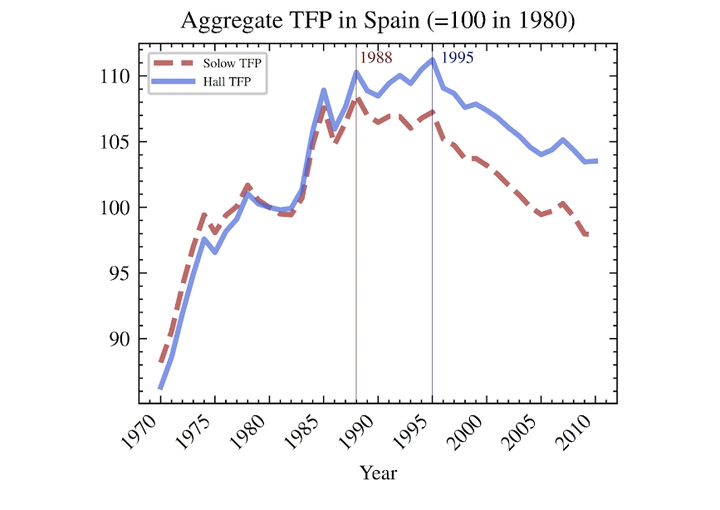
Abstract
This paper reexamines the evolution of total factor productivity (TFP) and its relationship to aggregate welfare in Spain and Italy. Using a growth-accounting framework for open and distorted economies with input-output linkages, I construct new series of “true” TFP that correct for biases in conventional estimates. I show that the decline in aggregate productivity in both countries was milder and occurred later than previously reported—beginning in 1995 in Spain and 2000 in Italy. These differences reflect a secular rise in distortions, which depress the Solow residual and bias standard TFP measures downward. Decomposing the sources of TFP change, I find that a deterioration in technical efficiency and domestic allocative efficiency account for most of the decline, while international trade contributed positively. Despite falling productivity, both countries experienced welfare gains, driven by improved access to global goods and more efficient international resource allocation. These findings underscore the importance of accounting for distortions and open-economy forces in empirical assessments of productivity and welfare.